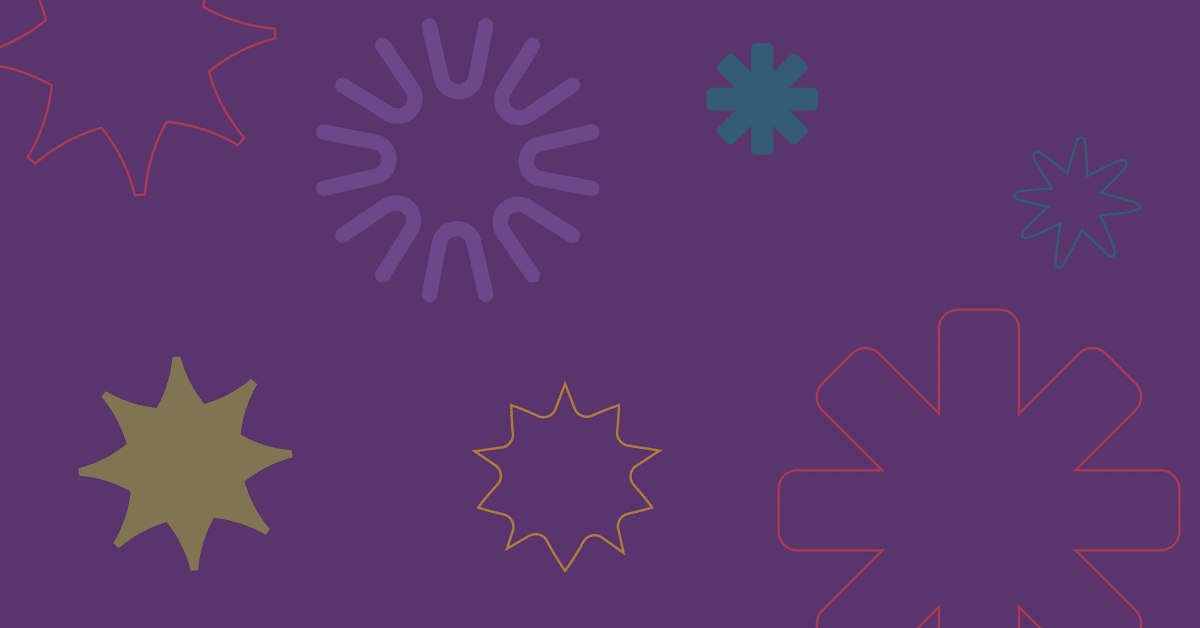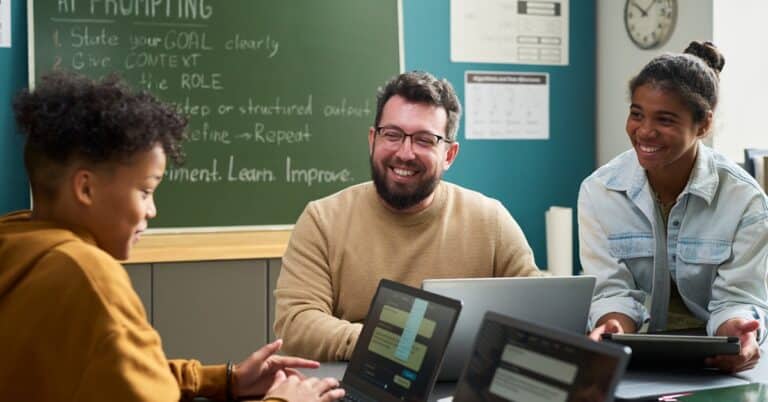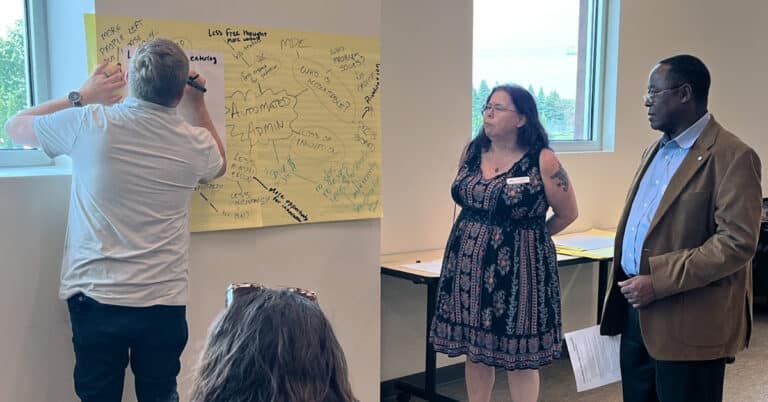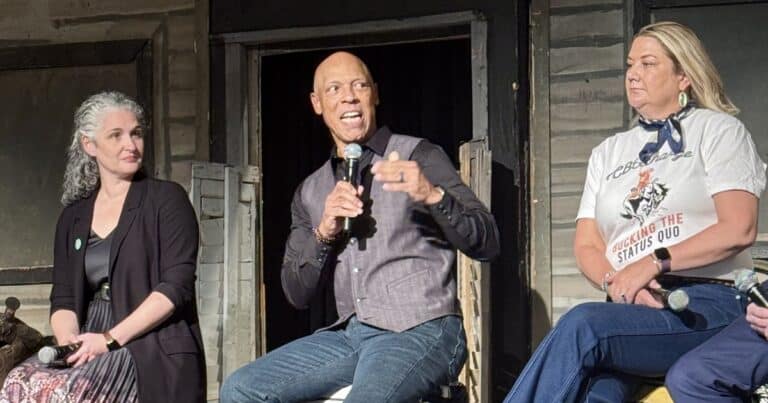When Pennsylvania educators, policymakers and community members gathered to think about how their education system was going to weather the pandemic, they weren’t just focused on the here and now. They wanted to plan for what teaching and learning would look like when it was over.
And it wasn’t just talk – they clarified their vision for the future of learning in the region, conducted listening sessions across the state and in nearby West Virginia, surveyed students and drafted goals for how dollars from the American Rescue Fund might be spent to address the challenges and opportunities identified by stakeholders.
Their biggest stakeholders?
Students.
“We’re asking students in seventh and eighth grades to determine what they want to do. If we’re going to ask them to be involved then we need to listen to them, too,” said Denise Manganello, principal of the Seneca Valley Academy of Choice in Harmony, Pennsylvania. “As parents and leaders and educators, we can’t do it the way that we learned. We need to hear from our kids the ways they want to learn and how we can do better.”
And what they’re hearing is that to deliver on the promise of missions and visions for learning across the state, the future of teaching and learning in Pennsylvania needs to be personalized.
The how and why of personalizing learning – and working together
Pennsylvania policymakers recognize that personalizing learning is grassroots, ground-up work.
“Personalized learning makes you as the policymaker, the building leader, the teacher, wrestle with universal design. It’s not one size fits all,” said Judd Pittman, former special consultant to the Secretary of Education on STEM at the Pennsylvania Department of Education. “If our mission or vision is lifelong learning for all, we have to find a way to personalize.”
As a local control state, Pittman recognizes the role the state department of education plays in ensuring that each learning community can see themselves in the work. There are a lot of networks in play in Pennsylvania and finding ways for them to work together strategically to advance a personalized, student-centered approach is critical. In January of 2021, KnowledgeWorks partnered with Remake Learning to facilitate a diverse working group of stakeholders from K-12, post-secondary, policy and support providers. The working group is developing a framework to support personalized strategies and practices based on common understanding, building a common vocabulary and bringing cohesion to the different networks operating in the state.
“We have been able to come together in an organized and intentional space to tackle the bigger questions and challenges around personalization: why and how,” said Jill Jacoby, assistant executive director of teaching and learning at the Allegheny Intermediate Unit in Homestead, Pennsylvania. “We have created a foundation of resources, connections and common themes and expanded the conversation beyond practitioners to influence policy and decision makers at the local, regional and state levels.”
“The power of the personalized learning working group is in bringing people together with diverse experience and perspectives to think deeply about systems and policies,” said Lori Phillips, KnowledgeWorks director of teaching and learning and one of the working group’s facilitators. “We’re exploring how to leverage existing practices and consider changes that will lead to equitable outcomes for all learners.”
For Jacoby, buy-in from all stakeholders is crucial to overcoming the barriers to meaningful change in education: money, time and resourcing.
“The time it takes to fully implement a cultural shift like personalization can take years, so we need to create understanding, define how the work will be done and then truly execute the work from the ground up,” said Jacoby.
Manganello is also a member of the working group. She highlights their collaboration as key because they’re not only learning from each other, they’re taking advantage of the expertise that’s already there when they’re trying something new.
“One of the challenges in Pennsylvania is that we’re all in these small districts trying to do similar things. But we’re not alone, and we don’t have to reinvent the wheel. Why would I want somebody else to make the mistake that I already made if I can stop them? Every mistake we make could impact a child,” said Manganello. “By working together and collaborating, we’re only making students’ lives better. That’s what everyone got into education for.”
Learning that is personalized and meaningful, that recognizes each student as a unique individual with unique needs and interests, shared decision-making – these are things within reach of Pennsylvania learning communities, and they’re what students want and need.
Pennsylvania educators are doing more than just listening to students.
“It’s becoming our culture, that our students’ creativity, students’ voices, are the most important,” said Manganello. “We’re helping them in fifth, sixth and seventh grade think of themselves as self-advocates and members of the community, and what that means.”
In a personalized learning environment that centers student voice, learners can:
- Express opinions and offer advice about initiatives
- Ask questions and learn about the process of implementation
- Provide input and feedback about what works and what doesn’t, what they like and don’t like
- Participate in conversations at all levels: in the classroom, at the building level, district level and as advocates at the state level
- Collaborate in planning and implementation; conversations throughout the process of any kind of implementation provides input from their viewpoint
- Partner with other students and educators within and among organizations to identify best practices and solutions for existing problems
- Lead among all stakeholders as an influencer and advocate
“Teachers should be more on our level,” said Amante, a senior and one of the youth takeover hosts on the podcast Remaking Tomorrow. “Not talk down to us; talk to us. Talk with us.”
More communication is what students involved in the surveys conducted by the state in 2020 and in the youth takeover of Remaking Tomorrow said they needed from education, too.
“What we need most in the world right now is conversation,” said Molly, a high school senior and a podcast guest. “In every conversation you should be learning something and teaching something. Not that it would solve the world’s problems – but we’d have a lot brighter of a future if we were taught that way; if teachers talked to us like we were worth having conversations with.”
Meaningful, engaged conversations with students demonstrates that educators are listening to what students have to say and valuing their ideas. And that can have big impact.
Conversations such as the ones initiated by students in Seneca Valley School District in Harmony, Pennsylvania, led to the removal of all Indigenous imagery from the district’s identity. High school seniors Claire Rafferty and Vivian Palmer, both members of the student diversity committee Social Handprints Overcoming Unjust Treatment (SHOUT), brought their passion for the issue into their learning experiences. They conducted significant research into the history of Indigenous figures as mascots and the ways they are perceived by tribal nations, as well as the ways the Seneca Valley mascot came to be and the significance it had for their community. They created a website and their work culminated in a presentation to the school board.
Learn more about SHOUT’s efforts to change their district’s Indigenous imagery through community advocacy.
Read now >
“These kinds of changes were happening all over the country, but we were able to anchor our argument in the fact that it’s a human issue – we were looking at our community’s history,” said Palmer. “The first and last things you heard in our presentation were about how the mascot affects our community.”
Though the school board voted in mid-June of 2021 to remove Indigenous imagery from the district’s image, they elected to keep the “Raider” name.
“The school board’s decision reinforced that this work is continuous,” said Palmer. “There’s so much more change that needs to be made, from representation in school curriculum of Indigenous peoples to how we teach Indigenous cultures.”
Rafferty agrees there’s more work to be done.
“Our goal with SHOUT this year is to improve student advocacy to make more effective change,” said Rafferty. “We want students across the country to know that they have a voice, that they can spark change.”
Taking action to support all learners
When Amante reflected on the kinds of learning experiences she wants, she easily identified the different ways she learned best and what she wanted out of her learning experiences. When asked what she’d do if she were in charge, however, she reflected on culture.
“I’d make school a more accepting space for kids to be themselves, for everyone to feel more comfortable being in their own skin and not being judged,” Amante said. Students deserve to bring their whole selves to school, to be heard, trusted and supported.
When they surveyed education stakeholders, Pittman found the students to be most powerful.
“During one of the debriefings a student said, ‘You all do a lot of talking. When is there going to be action?’ To hear that from a sophomore to probably some of the most influential leaders in the commonwealth – there was real clarity in that message,” said Pittman. “There are 1.7 million learners in Pennsylvania. If we don’t act, shame on us. If we don’t understand the power of listening, shame on us. We have to make sure that students have a seat at the table in a way that isn’t just veneer – it’s deep and meaningful and they can see that we value their voices, that we apply what they’re saying to policy and practice.”
Tomorrow, powered by Remake Learning, wants to make sure that youth have a voice in how education could and should change over the next 10 years. KnowledgeWorks partnered with Remake Learning and SLB Radio Productions to gather youth ideas about how they might remake learning for a post-pandemic future.
This was written by former Senior Manager of Communications Jillian Kuhlmann.





